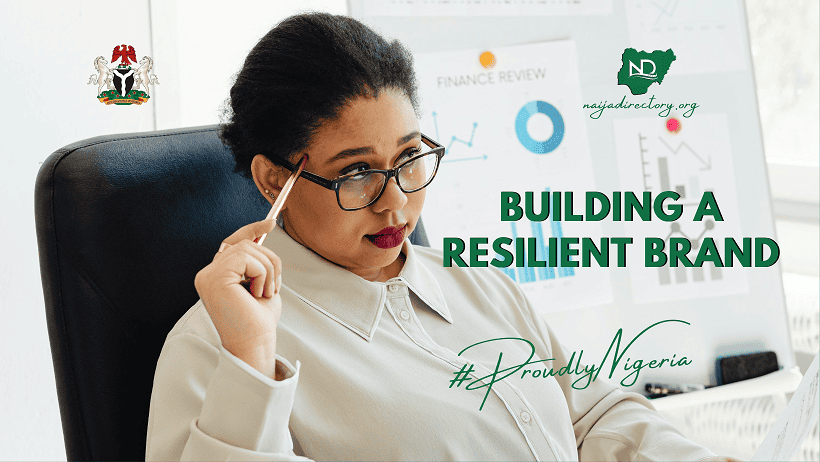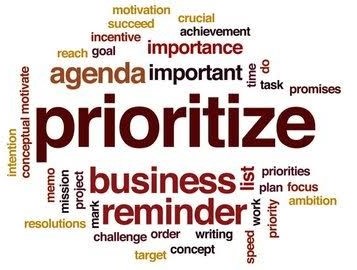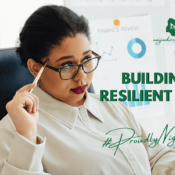
Building a Resilient Brand: Strategies for Success in a Dynamic Business Market
In today’s ever-evolving and unpredictable business environment, building a resilient brand is no longer just an advantage—it’s a necessity for lasting success. A resilient brand does more than survive market disruptions; it adapts, innovates, and thrives in the face of challenges. From navigating shifting consumer expectations to embracing technological advancements, resilience enables brands to stay relevant and competitive. In this article, we delve into essential strategies that help businesses not only weather uncertainties but emerge stronger, more trusted, and better positioned for sustained growth. This might be a long trip, Please fasten your seat belt and join us in the adventure.
Table of Contents
ToggleKey Concepts and Definitions
- Brand Resilience: The ability of a brand to adapt, innovate, and thrive despite market disruptions or changes.
- Core Values: Fundamental beliefs and principles that guide a brand’s decisions and actions.
- Consistency: Delivering reliable, uniform experiences across all customer touchpoints.
- Customer Experience (CX): The overall perception a customer has of a brand based on their interactions.
- Digital Transformation: The integration of digital technologies into all areas of business to enhance operations and customer engagement.
Some Strategies for Success in a Dynamic Business Market
1. Establish Strong Core Values
 A resilient brand begins with a foundation of clear, well-defined core values that act as its guiding principles. These values articulate the brand’s purpose, mission, and the promise it makes to its customers. Acting as a moral and strategic compass, they inform every decision the company makes and shape its internal culture. When brands consistently uphold these values, they exude authenticity, which resonates deeply with consumers, cultivating trust and loyalty over time.
A resilient brand begins with a foundation of clear, well-defined core values that act as its guiding principles. These values articulate the brand’s purpose, mission, and the promise it makes to its customers. Acting as a moral and strategic compass, they inform every decision the company makes and shape its internal culture. When brands consistently uphold these values, they exude authenticity, which resonates deeply with consumers, cultivating trust and loyalty over time.
For example, a brand committed to sustainability should integrate eco-friendly practices into every aspect of its operations, from sourcing raw materials to packaging and logistics. Even under market pressure, staying true to these values reassures environmentally conscious customers that their trust is well-placed. This alignment between values and actions not only strengthens consumer connections but also differentiates the brand in a crowded marketplace. To maximize impact, communicate these values consistently across all channels, ensuring they remain at the forefront of your audience’s perception.
2. Prioritize Consistency and Quality
Consistency and quality are the cornerstones of a resilient and enduring brand. Customers expect reliability every time they interact with your brand, whether they’re purchasing a product, experiencing customer service, or engaging with your digital content. Delivering consistent, high-quality experiences not only fosters trust but also builds a positive brand reputation that can weather industry challenges and shifts.
 To achieve this, focus on maintaining uniformity across all brand touchpoints. This includes ensuring product excellence, offering responsive and empathetic customer service, and implementing cohesive branding in your marketing efforts. A consistent visual identity, tone of voice, and messaging reinforce your brand’s reliability in the eyes of consumers.
To achieve this, focus on maintaining uniformity across all brand touchpoints. This includes ensuring product excellence, offering responsive and empathetic customer service, and implementing cohesive branding in your marketing efforts. A consistent visual identity, tone of voice, and messaging reinforce your brand’s reliability in the eyes of consumers.
In a competitive market, delivering exceptional quality across all aspects of your business helps your brand stand out as a leader. Whether it’s through innovative product design, user-friendly interfaces, or timely problem resolution, consistently exceeding expectations positions your brand as dependable and trustworthy. Over time, this builds customer loyalty and generates positive word-of-mouth, which are critical for long-term growth.
3. Embrace Adaptability and Innovation
In a fast-paced, ever-changing world, adaptability is a cornerstone of brand resilience. A successful brand must remain open to change, proactively embrace innovation, and be willing to pivot when necessary. This might involve adopting emerging technologies, revamping marketing strategies, or even rethinking business models to stay relevant and competitive. Brands that demonstrate flexibility are more likely to thrive in a dynamic market environment.
To foster adaptability, invest in continuous research and development to anticipate shifts in consumer behavior and industry trends. Regularly analyze market data, monitor competitors, and gather customer feedback to identify potential opportunities for growth and improvement. Additionally, experimenting with new ideas and taking calculated risks can open doors to untapped markets or novel solutions that set the brand apart.
For instance, brands that have successfully integrated AI-driven tools or expanded into digital marketplaces have not only stayed relevant but also gained a competitive edge. By embracing change and innovation, a brand positions itself as forward-thinking and agile—qualities that are vital for long-term success.
4. Build Emotional Connections with Consumers
In an increasingly competitive marketplace, resilient brands go beyond offering great products or services—they build deep emotional connections with their customers. Emotional branding fosters loyalty by creating a sense of belonging and shared values, transforming customers into passionate advocates who support the brand, even during challenging times.
Storytelling is one of the most effective tools for forging emotional bonds. Craft narratives that highlight the brand’s journey, values, or impact on society, and ensure they resonate with your target audience’s aspirations and emotions. For example, a brand that shares stories of its charitable initiatives or sustainability efforts can evoke feelings of pride and purpose in its audience.
Community engagement is another powerful way to create emotional ties. By fostering a sense of community—whether through social media interactions, user-generated content, or events—brands make customers feel valued and included. Personalized marketing is equally critical; using data to deliver tailored messages and offers demonstrates that the brand understands and cares about individual needs.
By connecting on an emotional level, brands can build a loyal following that not only supports them during downturns but also amplifies their message through word-of-mouth and social sharing. Emotional connections can turn customers into lifelong advocates, ensuring the brand remains resilient in the face of challenges. At this point, I hope I haven’t lost you as we ride along together.
5. Invest in Customer Experience
Delivering an exceptional customer experience (CX) is fundamental to building a resilient brand in Nigeria’s dynamic and competitive business landscape. Every interaction with your brand—whether online or offline—is an opportunity to create trust, loyalty, and positive brand sentiment.
Start by identifying pain points in the customer journey and addressing them through streamlined processes. Whether it’s simplifying online purchase procedures, offering 24/7 responsive customer support, or providing personalized solutions, each improvement enhances the customer’s perception of your brand. Brands that actively listen to and act on customer feedback demonstrate a commitment to meeting their audience’s evolving needs, a strategy that is particularly crucial for businesses operating in Nigeria’s diverse markets.
For example, a Nigerian retailer that ensures prompt delivery and offers efficient post-sale support can foster trust among local consumers who value reliability. By consistently exceeding expectations, brands not only retain loyal customers but also attract new ones through word-of-mouth recommendations. Exceptional CX isn’t just an investment in customer satisfaction; it’s a long-term strategy for resilience and growth.
6. Focus on Digital Transformation
In today’s digital-first world, embracing digital transformation is a necessity for businesses in Nigeria aiming to build resilient and future-ready brands. With a rapidly growing number of Nigerian consumers relying on online platforms for information, shopping, and services, establishing a strong digital presence is no longer optional—it’s a competitive advantage.
Begin by optimizing your online presence across key digital channels, including professional websites, active social media profiles, and e-commerce platforms. Ensure that your business listings are comprehensive, up-to-date, and optimized with relevant keywords to improve discoverability.
Additionally, invest in tools that enhance customer engagement and operational efficiency. Chatbots, for instance, can provide instant responses to inquiries, while CRM software enables better management of customer relationships. Gathering data from digital interactions allows businesses to gain insights into consumer behavior, preferences, and emerging trends. In Nigeria’s fast-evolving market, these insights can inform strategic decisions that keep your brand one step ahead of competitors.
Digital transformation also involves staying mobile-friendly, as a large percentage of Nigerians access the internet through smartphones. Businesses that offer mobile-optimized websites and user-friendly apps ensure accessibility and convenience for a tech-savvy consumer base.
By integrating digital tools and strategies, brands can not only enhance customer satisfaction but also adapt quickly to changing market conditions, making them more resilient and competitive in Nigeria’s dynamic business environment.
7. Sustainability and Social Responsibility
A resilient brand in Nigeria’s business ecosystem is one that prioritizes sustainability and social responsibility alongside profitability. In today’s market, Nigerian consumers are increasingly drawn to brands that actively contribute to societal progress and environmental preservation. Demonstrating a genuine commitment to these values not only enhances a brand’s reputation but also helps to forge deep connections with socially conscious audiences.
To integrate sustainability, consider adopting eco-friendly practices such as reducing waste, sourcing materials ethically, or utilizing renewable energy. For businesses in Nigeria, supporting local communities can have a particularly powerful impact. Initiatives such as providing job opportunities, partnering with local suppliers, or contributing to community development projects resonate strongly with Nigerian consumers who value brands that invest in their environment.
Furthermore, use storytelling to highlight your sustainability efforts. Share stories of how your brand is making a positive difference, whether it’s through reducing carbon footprints, supporting local artisans, or contributing to education initiatives. This transparency builds credibility and appeals to consumers who want to align with brands that stand for a higher purpose.
Your Brands can amplify their message by featuring sustainability and social responsibility as key elements of their business profiles. This can improve discoverability and position the brand’s ethical business practices in Nigeria.
8. Learn from Failures and Build on Successes
Resilience is rooted in a brand’s ability to learn from its failures and build on its successes. In Nigeria’s dynamic business environment, setbacks are inevitable, but how a brand responds to them can make all the difference. Brands that embrace failure as an opportunity for growth demonstrate integrity and agility, traits that inspire trust among customers and stakeholders.
When mistakes occur, it’s crucial to analyze them thoroughly and address them transparently. For example, if a product recall becomes necessary, publicly owning up to the issue and offering a solution—such as a replacement or refund—shows accountability and care for customers. Transparency in addressing errors builds stronger trust, as it highlights the brand’s commitment to doing the right thing.
Equally important is celebrating successes. Acknowledging milestones and sharing achievements reinforces confidence within the organization and among consumers. Highlighting key wins, such as customer satisfaction milestones or social impact initiatives, creates a positive narrative around the brand.
Fostering a culture of continuous improvement is vital for long-term resilience. Encourage teams to review both successes and failures regularly, identifying lessons learned and applying them to future strategies. This adaptability not only helps businesses thrive in the face of challenges but also positions them as reliable and forward-thinking leaders in Nigeria’s competitive market.
9. Empower Brand Advocates
Customer advocacy is a critical asset for building a resilient brand, especially in Nigeria’s competitive business environment. Loyal customers who genuinely love and trust your brand become natural ambassadors, spreading positive word-of-mouth and enhancing your credibility.
Start by fostering engagement through social media and community interactions. Encourage customers to share their experiences with your brand through reviews, testimonials, and user-generated content (UGC). For example, you can run campaigns asking customers to share photos or videos showcasing how they use your products or services, tagging your business for wider reach. Highlighting their stories not only celebrates your customers but also strengthens their emotional connection to your brand.
Implementing loyalty programs is another effective way to nurture advocacy. Reward repeat customers with discounts, exclusive offers, or early access to new products. This not only incentivizes loyalty but also turns satisfied customers into enthusiastic supporters who are more likely to recommend your brand to others.
By empowering advocates, you create a network of passionate supporters who amplify your brand’s message. In challenging times, these advocates can provide invaluable support, acting as a buffer against negative sentiment and reinforcing your brand’s resilience in the Nigerian market.
10. Develop a Clear Crisis Management Plan
Resilient brands understand that challenges are inevitable, and they prepare for them with a robust crisis management plan. In Nigeria’s dynamic market, businesses face unique challenges, such as fluctuating economic conditions, regulatory changes, or sudden shifts in consumer behavior. A well-prepared plan ensures that your brand can respond quickly and effectively to minimize damage and maintain customer trust.
Your crisis management plan should include clear protocols for identifying potential issues, assigning responsibilities, and determining communication strategies. For instance, designate a crisis team and ensure they’re trained to handle situations like product recalls, service disruptions, or public relations challenges. Maximizing social media and platforms like Naijadirectory can play a crucial role in communicating timely updates to your audience during a crisis, such as issuing public statements or clarifying misinformation.
Transparency and empathy are key to retaining customer trust during a crisis. Respond quickly to acknowledge the issue, explain what went wrong, and outline how you’re resolving it. For example, if a Nigerian food brand faces a recall, issuing an honest apology, offering refunds, and sharing steps to prevent future issues can help mitigate backlash and reassure customers.
Post-crisis, conduct a thorough review of what happened and identify lessons learned to refine your strategy. Brands that handle crises with integrity, empathy, and professionalism often emerge stronger, demonstrating their reliability and earning even greater loyalty from their audience.
11. Foster an Adaptive and Engaged Workforce
Behind every resilient brand is a team of empowered and adaptable employees. For businesses in Nigeria, where markets can be highly dynamic, investing in a strong and engaged workforce is vital. Employees who feel valued, motivated, and aligned with the brand’s mission are more likely to contribute positively to its growth and stability.
Start by cultivating a company culture that prioritizes collaboration, innovation, and adaptability. Encourage open communication across all levels of the organization, creating an environment where employees feel comfortable sharing ideas and feedback. This inclusiveness not only boosts morale but also helps the business remain agile in responding to challenges.
Providing regular training and professional development opportunities ensures your workforce stays ahead of industry trends and best practices. For instance, Nigerian businesses can focus on skills like digital literacy, customer engagement, and market analysis to stay competitive in their respective sectors. Additionally, recognizing and rewarding employee contributions fosters loyalty and motivates teams to consistently perform at their best.
A workforce that is aligned with the brand’s vision becomes a powerful internal advocate. Employees who believe in the company’s mission and values naturally champion the brand, further enhancing its resilience and ability to weather challenges.
12. Balance Short-Term Gains with Long-Term Vision
While short-term wins are important, building a resilient brand in Nigeria requires balancing immediate gains with a clear, long-term vision. Businesses that focus solely on short-term profits often risk diluting their brand identity and compromising their long-term sustainability. A strategic approach that prioritizes lasting growth over quick returns helps establish a reputation for stability and integrity in the marketplace.
To maintain this balance, anchor decision-making in your brand’s mission and core values. For example, if a Nigerian brand values ethical sourcing, it should avoid cutting corners for short-term cost savings, as doing so could harm its reputation. Instead, consistently making decisions that align with its values helps build trust and credibility over time.
Strategic planning is key. Develop a roadmap that includes both short-term objectives and long-term goals, ensuring they complement rather than compete with each other. Businesses can also leverage data analytics to make informed decisions about market opportunities, allowing them to prioritize actions that contribute to sustainable growth.
By focusing on long-term vision, brands in Nigeria can better navigate market uncertainties, ensuring they remain relevant and successful for years to come. This commitment to the future not only strengthens customer loyalty but also establishes the brand as a trusted leader in its industry.
FAQ
- Why is brand resilience important? Brand resilience helps businesses adapt to market disruptions, stay relevant, and maintain trust among customers.
- How can I improve my brand’s consistency? Focus on providing high-quality products, customer service, and maintaining uniformity across your brand’s messaging and visual identity.
- What role does customer experience play in building a resilient brand? Exceptional customer experience fosters loyalty, trust, and positive sentiment, all of which contribute to brand resilience.
- What is the significance of sustainability for a resilient brand? Brands that prioritize sustainability attract socially conscious consumers and enhance their reputation, which helps them remain resilient.
- How do I empower brand advocates? Engage customers through loyalty programs, encourage reviews, and celebrate user-generated content to turn satisfied customers into brand ambassadors.
Conclusion
Building a resilient brand is a complex, multifaceted process that requires commitment, adaptability, and a deep understanding of both the brand’s identity and the market landscape. By establishing core values, prioritizing consistency, embracing innovation, and investing in customer relationships, brands can not only survive challenges but thrive and grow stronger. A resilient brand isn’t just a strong one; it’s a brand that can adapt, inspire loyalty, and create lasting impact, no matter what challenges arise.
Quick Links
- Digital Transformation in Business
- How to Discover Business Opportunities in Your Environment
- Information Required to Add Your Business to Naijadirectory: A Step-by-Step Guide
- How to Start a Lucrative Business: A Comprehensive Guide
- 10 Tips for Creating a Small Business Marketing Budget
- What are the Types of Business Registrations in Nigeria?
- Business Name Registration in Nigeria
- Top 10 Strategies for Advertising Your Business in Nigeria
How useful was this post?
Click on a star to rate it!
Average rating 5 / 5. 1
We are sorry that this post was not useful for you!
Let us improve this post!
Tell us how we can improve this post?
All Categories
Tags
SPONSORED

Subscribe now to get direct updates
Join Naijadirectory Newsletter




